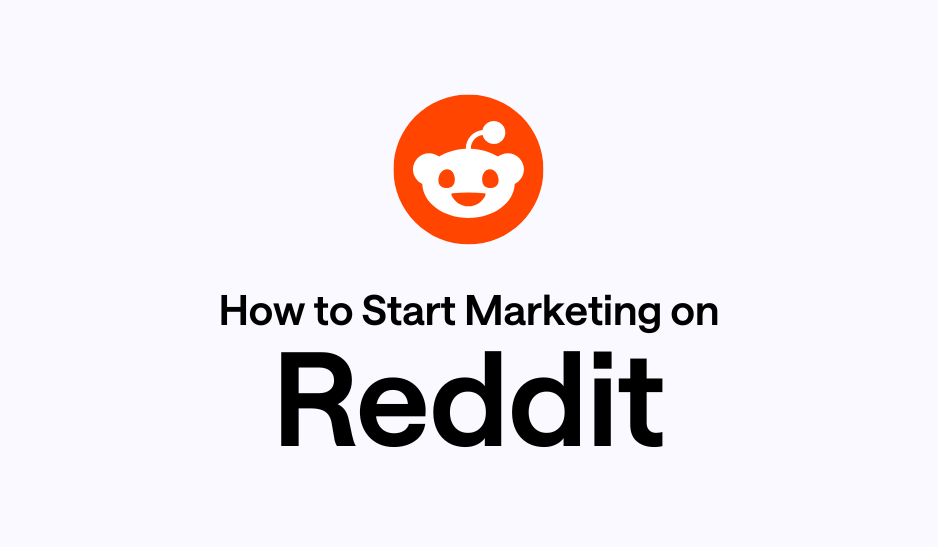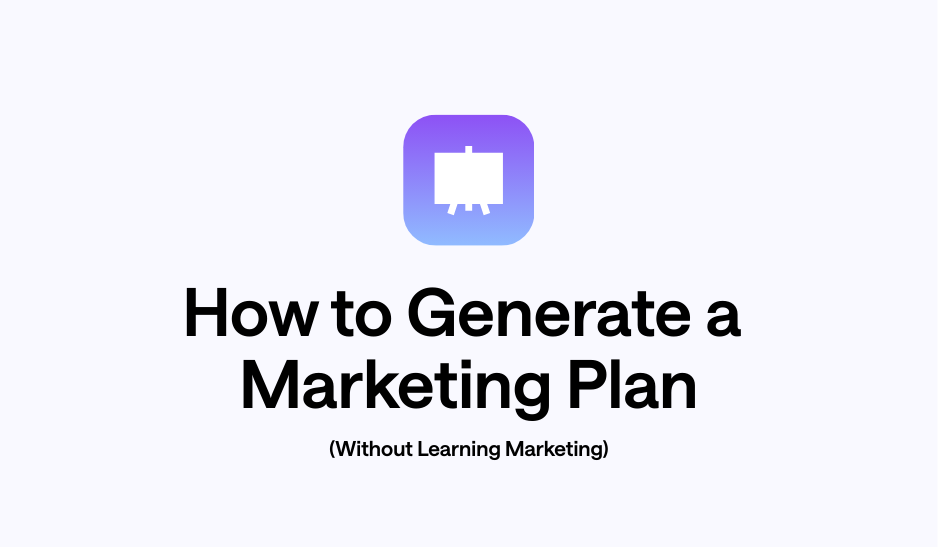Will AI Replace Marketers in 2025?
You're wearing too many hats. One moment you're writing social posts, the next you're tweaking your website copy, then scrambling to analyze campaign results or come up with fresh ideas. You know marketing is vital, but it often feels like you're just reacting instead of strategically building. You're not alone.
Founders and small teams are constantly pulled in a dozen directions. The pressure to produce more content, target the right customers, and stay ahead of competitors can be overwhelming. And with AI tools popping up every week promising to "automate everything," it's hard not to wonder: Will AI make marketers obsolete?
The common (but flawed) approach: chasing tools instead of outcomes
In the scramble to keep up, many founders take a piecemeal approach to AI. They bolt on tools like chatbots for customer support, content generators for blogs, and analytics dashboards for data. It feels productive. But it's not a strategy.
This approach treats marketing like a checklist of disconnected tasks, each one handed off to a different AI tool. There's no unifying plan behind it. No clear sense of who you're targeting, what message will resonate, or how it all ties back to your business goals.
Another trap is shiny object syndrome. A new AI tool promises to write your entire marketing funnel. Another promises to create stunning visuals in seconds. Founders jump from tool to tool, hoping one of them will be the silver bullet. But without a clear strategy guiding how these tools are used, they often just add complexity instead of clarity.
Why that approach fails: more noise, less clarity
The result?
You end up with a patchwork of content and campaigns that don’t move the needle. Traffic might go up, but conversions stall. Your message feels generic. You're busy, but not effective.
You're also likely spending more money than you realize. Between subscriptions to half a dozen tools, the time spent learning each one, and the opportunity cost of campaigns that don’t deliver, the cost of doing AI wrong is real.
And worse, your brand starts to sound like everyone else’s. Because many AI content tools rely on the same underlying models, their output tends to be safe, generic, and often eerily similar. Without a strong strategic foundation, it’s easy to blend into the noise.
Meanwhile, your competitors who do have a strategic foundation are using AI very differently. They're not asking AI to do their marketing for them. They're using it to accelerate the parts that matter most: understanding their audience, crafting sharper messaging, and making smarter decisions faster.
When AI is just a tool without direction, it amplifies confusion. But when it's guided by real strategy, it amplifies impact.
A better, data-driven way: use AI to build a strategy, not just execute tasks
Here’s the shift that changes everything: Stop thinking of AI as a substitute for marketers. Start thinking of it as a force multiplier for strategic thinking.
The most effective teams today aren’t outsourcing their judgment to AI. They’re using AI to surface insights they can act on. They start with data—real, verifiable data about their market, audience, and competitors. From there, they use AI to:
-
Identify underserved customer segments based on demographics, behaviors, and psychographics
-
Shape brand positioning that aligns with what those segments care about
-
Generate campaign ideas tailored to those insights, not just generic outputs
-
Evaluate which channels are most likely to drive engagement and ROI, backed by historical data and benchmarks
-
Run experiments and interpret results faster, iterating more effectively than teams relying on gut instinct
This isn’t about handing over the reins. It’s about working smarter, faster, and with more confidence because your decisions are grounded in reality, not guesswork.
And importantly, it puts you back in control. You're not chasing tools. You're building a system—one where AI serves your strategic goals, not the other way around.
Real strategy doesn’t start with content. It starts with clarity.
Content, campaigns, ads—these are outputs. But strategy is about inputs: who you're speaking to, what they care about, and how your brand uniquely addresses that need. AI is incredibly powerful at surfacing patterns in data that answer those questions.
For example, using public datasets like the U.S. Census and American Community Survey, it's possible to:
-
Pinpoint geographic regions where your ideal customer profile is concentrated
-
Uncover unmet needs within certain demographics
With this clarity, your marketing becomes focused. Your messaging sharpens. And your use of AI shifts from being a crutch to being a catalyst.
Instead of asking, "Can AI write my homepage copy?" you're asking, "What do my top customer segments need to hear to convert, and how can AI help me communicate that better, faster, and across more channels?
The evolving role of the marketer: part strategist, part orchestrator
The best marketers today aren’t fighting AI—they’re collaborating with it. They understand that while AI can generate content and surface insights, it still needs human judgment to steer the ship.
AI doesn’t know your brand story. It doesn’t understand the emotional nuance of your positioning. And it certainly doesn’t know your customers like you do.
But it can:
-
Speed up research
-
Summarize complex data
-
Test ideas at scale
-
Generate first drafts you can refine
Think of it like this: AI is the junior marketer who works 24/7, never needs a coffee break, and is great at research and production. But you’re still the creative director. The strategist. The one with the vision.
A mindset shift that separates amateurs from pros
The marketing landscape is changing fast. But the biggest difference between those who thrive and those who flounder isn't their tech stack. It's their mindset.
Amateur marketers see AI as a way to avoid doing the hard thinking. Pro marketers see AI as a tool to scale their thinking.
Amateurs chase hacks. Pros build systems.
Amateurs delegate strategy to machines. Pros use machines to sharpen strategy.
The marketers who will thrive in the next 5-10 years aren’t the ones who master every AI tool. They're the ones who learn how to ask better questions, interpret data more effectively, and execute with greater focus.
The bottom line: strategy is still king, but AI can build it faster
AI won’t replace marketers. However, it will replace marketers who continue to do things the old way—guessing, reacting, and hoping something sticks.
The future belongs to those who use AI not just to save time, but to gain clarity. To make better decisions, not just faster ones. To build strategy, not just check boxes.
Strategy isn't going away. It's just being rebuilt—faster, smarter, and grounded in more data than ever before.
That's what democratizing strategy looks like. And that's the kind of transformation Cambium AI was built to support.
Book a demo to see the platform in action or start for free here.

.png)
